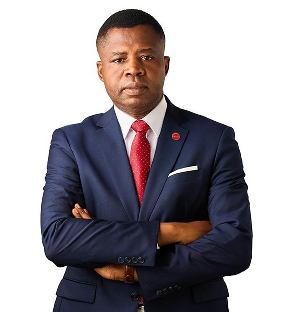Accra (Greater Accra), 21st April
Consumers at a forum in Accra on Wednesday were unanimous that the proposed tariff increase by Ghana Water and Sewerage Corporation (GWSC) is not justified.
They identified inefficiency as being responsible for the inability of the corporation to improve upon its service delivery. The forum was organised by the Public Utilities Regulatory Commission to collate views on the proposed eight cedis per gallon increase on tariffs. This, the GWSC said, would help them in arriving at suitable economic rate for service delivery.
The forum was attended by a cross-section of the public, including members of Parliament and identifiable bodies, such as the Trades Union Congress, Association of Ghana Industries, and the Energy Foundation.
Mr Kwamina Bartels, Member of Parliament for Ablekuma North, said the corporation has been losing between 51 to 58 per cent of the water it produces because of inefficiency and illegal connection done mostly by their staff. To pass the burden of production cost to the consumer is, therefore, unfair, he said. The MP said it was time the corporation identified its mission as to whether it was principally providing public services or was out for profit. Mr Andrews Coleman, TUC Administrative Secretary, said the proposed 76 per cent increase would have a negative impact on the economy and increase the poverty line of the population. He said the corporation is not doing much to manage its service delivery, adding that the privatisation of the service would be "very bad", because it would be at the mercy of market forces.
Mr Albert Kan-Dapaah, Member of Parliament for Affigya-Sekyere West,was, however, of the view that the issue is not a question of inefficiency. He said the company should be helped financially if it is to improve its services, adding that the only way to do so would be for the government to step in through subsidies. Others who spoke also said they would only be willing to pay more if the company improved upon it services.
Earlier Mr Charles Adjei, Managing Director of the company who gave reasons why they needed to increase their rates, said the GWSC seeks to achieve 100 per cent urban water supply coverage by the year 2015. He said a total of 1.2 billion dollars would have to be invested in major rehabilitation works to achieve this target.
The MD noted that there are about nine million Ghanaians without access to potable water supply and therefore called for support in its programme. Mr Adjei said due to controls on tariffs adjustments, the cost recovery programme of the corporation has not been achieved.
This has resulted in a not-too-good service delivery, and government has since 1996 stopped providing subsidy to the corporation. On some of the problems facing the corporation, Mr Adjei said currently it owes the government 70 billion cedis and has to pay the Electricity Company of Ghana 21.8 billion cedis. He said total expenditure for this year is estimated at 154.9 billion cedis. "The corporation last secured adjustment of its water charges in 1998. In that year the corporation recorded an annual deficit of 29.9 billion cedis, and by the close of this year, it is likely to hit 47.7 billion cedis".
The Managing Director said management has initiated a number of measures to improve its service delivery. This would cover increasing meters by 40,000, conducting field checks for illegal connections and intensifying leakage detection. He said the corporation currently operates 210 pipe-borne systems, and urban coverage ranges between 65 to 78 per cent.110 of these systems located in the rural areas are to be transferred to the district assemblies for operation and management.
Nana (Dr) S..K.B. Asante, chairman of PURC, said the commission is not only concerned with periodic reviewing of tariffs but is aggressively pursuing programmes to protect the interest of consumers. He said regulations on standards of performance and billing practices, consumer complaint procedures and consumer service committees are at an advanced stage and would be introduced in parliament shortly.
Business News of Wednesday, 21 April 1999
Source: --












